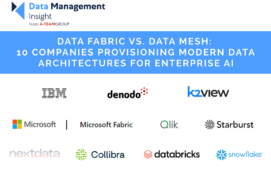The Reference Data Subject Group (RDSG) of the MiFID Joint Working Group is spearheading efforts to make entity and instrument identification standards a reality in time to ensure industry readiness for MiFID. A body of analytical work that began at the end of July is scheduled to be completed before year end.
The RDSG produced a discussion paper in January on the requirements and impact of MiFID on the reference data area. At the end of July the RDSG set up, with the participation of treasury standards body TWIST (which recently became a backer of the MiFID JWG along with ISITC Europe, SIIA/FISD and FIX Protocol Limited) a sub-project stream to address the remaining MiFID reference data issues. Three sub-groups focusing on entities, instruments and markets are currently documenting issues and problems in these areas under MiFID, and defining models, with a view to recommending solutions to these challenges. According to Tom Seiden of ISITC Europe who is orchestrating this work, together with Peter Guldentops of TWIST and Accenture’s Tony Kirby who heads up the overall RDSG effort, the activity
will continue for the next couple of months, at which point the sub-groups will report back. The aim is for the bulk of this analysis to be completed before the end of the year.
The earlier work of ISITC Europe’s IT Group and the Reference Data User Group (RDUG, which formally merged with ISITC Europe in March 2006), to create a Business Entity Identifier (BEI) in conjunction with ISO, and the work on a Unique Instrument Identifier (UII), have been rolled up into the RDSG effort for MiFID, Seiden says. “Clearly reference data issues go above and beyond MiFID, but MiFID is a very useful catalyst, because the industry will have to act now.” The RDSG is seeking to ensure its efforts are consistent with the work of ISO Working Groups 11 (Securities Data Model) and 8 (International Business Entity Identifier).
Although TWIST’s focus has been on standards for treasury rather than securities, Seiden emphasises the value of the body’s involvement in this activity, which is spearheaded by ex-Swift man Guldentops. “With its focus on corporates, TWIST brings a very fresh view of the issues and problems, as well as insight into how to handle the retail side of the equation,” he says.
The question of which body will administer agreed reference data stand-ards once they have been developed also must be answered, and indeed there may be a requirement for an interim business entity solution given the proximity of the MiFID implementation deadline. Swift or one of the commercial solutions on the market would be poss-ible candidates for this role, Seiden says.
Subscribe to our newsletter




